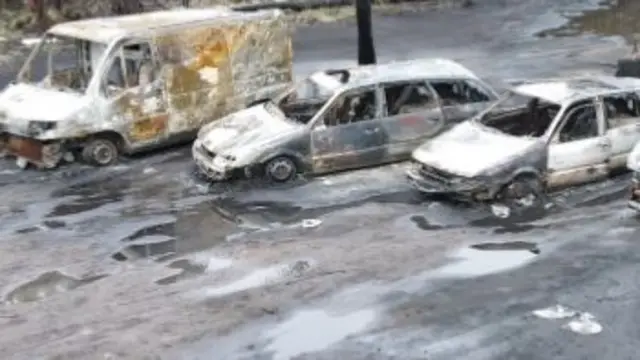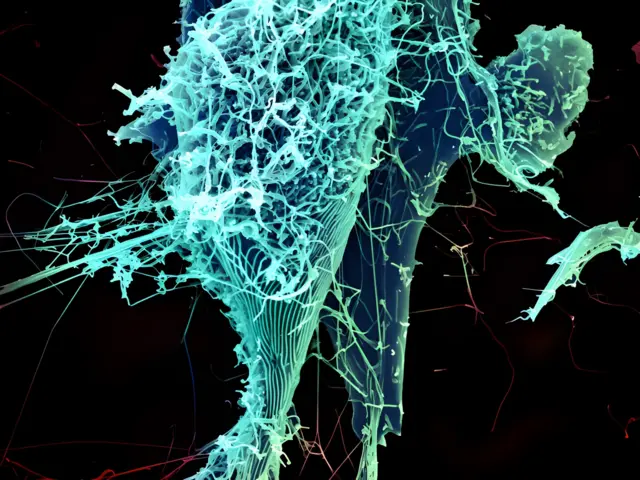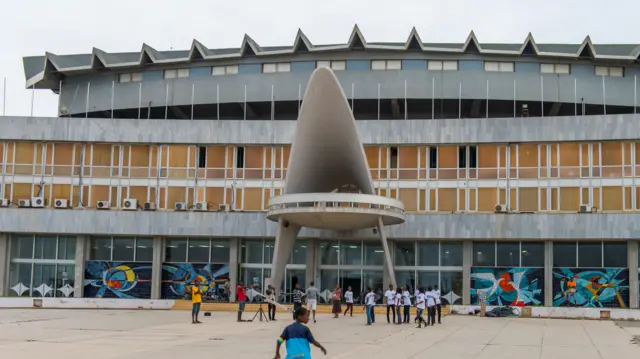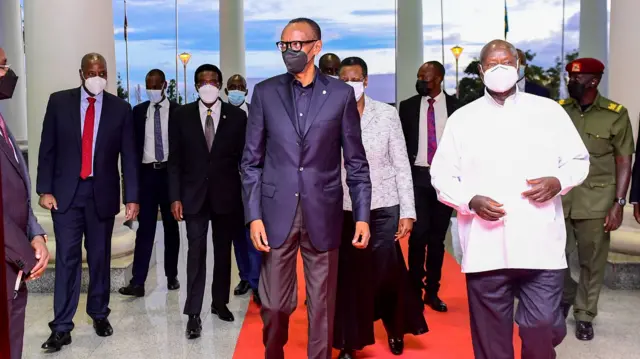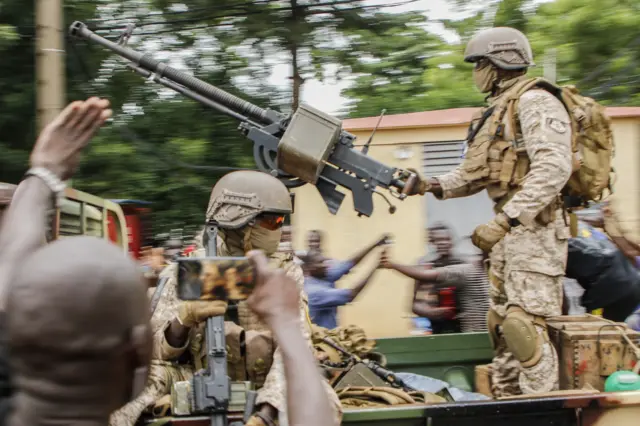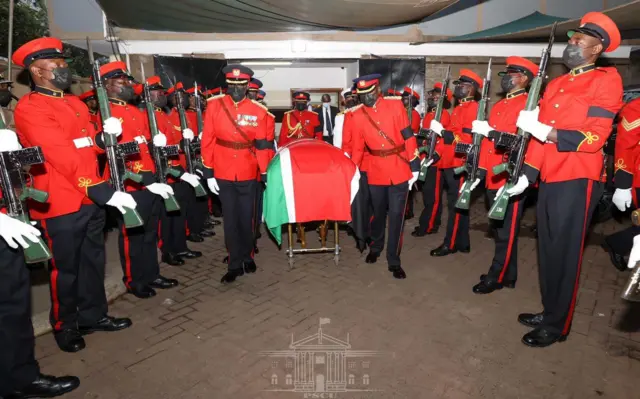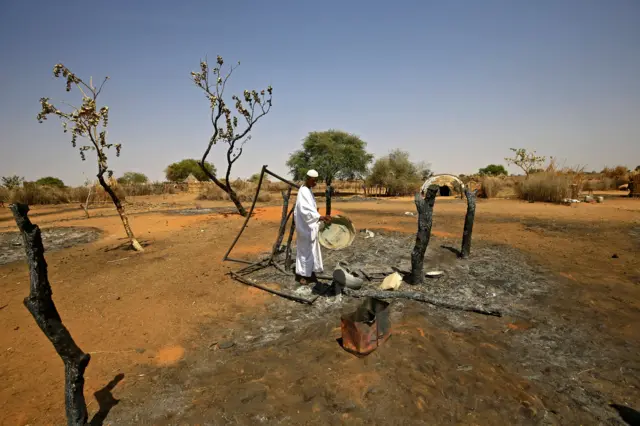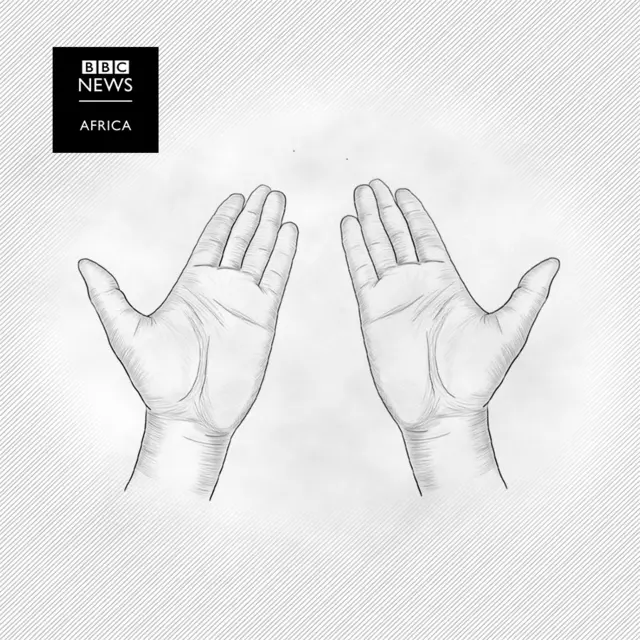Mozambique park to reintroduce rhino species after 40 yearspublished at 12:55 BST 25 April 2022
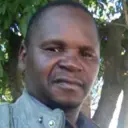 Jose Tembe
Jose Tembe
BBC News, Maputo
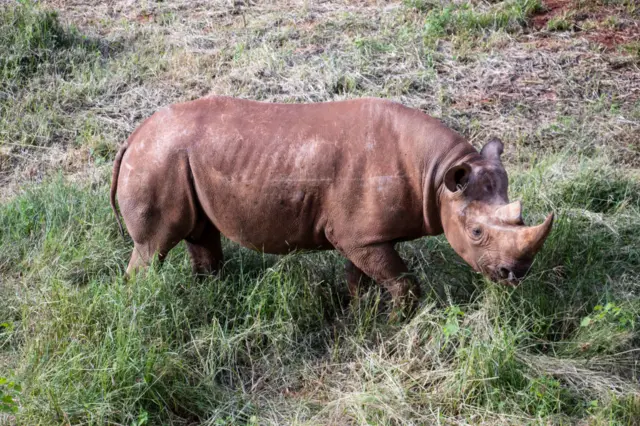 Image source, Getty Images
Image source, Getty ImagesThe critically endangered black rhino and near-threatened white rhino will be reintroduced to Zinave park in one to two years
A plan to reintroduce rhino species to the Zinave National Park in southern Mozambique – which became extinct there 40 years ago - has been announced by the governments of Mozambique and South Africa.
The governments approved the reintroduction of more than 40 rhinos to a specially constructed high-security sanctuary within the 4,000 sq km (1,540 sq mile) park.
The rhinos will be translocated from South Africa over a period of one to two years.
The project to bring in the critically endangered black rhino and the near-threatened white rhino to the park is being spearheaded by the South African non-governmental organisation Peace Parks Foundation and the Exxaro Resources company, which is a coal and mining firm.
In 2002, Mozambique, South Africa and Zimbabwe entered into a treaty to establish the Great Limpopo Transfrontier Conservation Area, spanning over 100,000 sq km (3860 sq miles) and incorporating five national parks, including the iconic Kruger National Park.
Since 2016, a rewilding programme has reintroduced more than 2,300 animals representing 14 species – including buffalos, elephants and leopards - into the park.
The park was ravaged during the Mozambique civil war that ended in 1992 and subsequent poaching.

